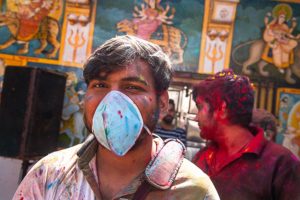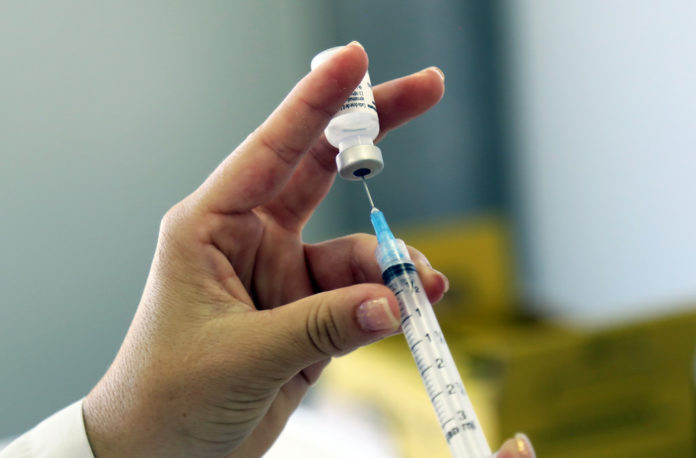1,74,94,17,978 Covishield doses, 1.22 lakh all vaccine adverse events: Astra Zeneca confession raises many questions for India
Abantika Ghosh
When AstraZeneca told a UK court earlier this week that

its COVID19 vaccines can cause thrombosis with thrombocytopenia syndrome – blood clots and low blood platelets – it created global ripples. Some of those are being felt in India which as late as December last year saw the government declaring COVID19 vaccines safe and with no link to sudden cardiac deaths based on a study by the Indian Council of Medical Research.
Propensity for blood clots are one of the known reasons for sudden cardiac death and AZ’s submission admits that the vaccine causes it. How then did ICMR study reach a conclusion that defies the assessment of even the vaccine’s manufacturer? What also of the six other vaccines against the SARS-CoV2 virus that India has used since 2021, some of them from even before complete data on their safety and efficacy were available and even after they had fallen afoul of multiple foreign regulators.
AstraZeneca’s vaccine, sold in India under the brand name Covishield and manufactured by the Serum Institute of India (SII) was the mainstay of India’s COVID19 vaccination programme. According to the Cowin portal, 1,74,94,17,978 Covishield doses have been administered in India with just about 1.2 lakh (0.007%) AEFIs (adverse events following immunisation) being reported.
AZ’s submission in court raises questions both about how Indian scientists analysed AEFIs to exonerate COVID19 vaccines and why India has reported such a low rate of AEFI despite widely using a vaccine that its manufacturer says can have potentially serious or even fatal side effects. The AEFI committee has in the past faulted states on their AEFI reporting but it is also a fact that the noise created in associating vaccines with nationalism may have aso discouraged many people who faced vaccine side effects from reporting. It may also have been a function of the high level of resilience that Indians in general have in living with adverse reactions, in medicine and beyond.
In December last year, the government of India told the Lok Sabha that a study conducted by ICMR has observed that COVID-19 vaccination did not increase the risk of unexplained sudden death among young adults in India.
Health minister Mansukh Mandaviya told the Lower House while replying to a question from Trinamool Congress MP Sajda Ahmed: “A total of 729 cases and 2916 controls were included in the analysis. It was observed that receipt of at least one dose of COVID-19 vaccine lowered the odds for unexplained sudden death, whereas past COVID-19 hospitalization, family history of sudden death, binge drinking 48 hours before death/interview, use of recreational drug/substance and performing vigorous-intensity physical activity 48 hours before death/interview were positively associated. Two doses lowered the odds of unexplained sudden death, whereas single dose did not. Hence, the study observed that COVID-19 vaccination did not increase the risk of unexplained sudden death among young adults in India. Past COVID-19 hospitalization, family history of sudden death and certain lifestyle behaviors increased the likelihood of unexplained sudden death.”
Basically ICMR, blamed everything from lifestyle to addiction to family history for rising incidences of unexplained sudden death except the one thing that now stands indicted in AZ’s response to the class action suit where it conceded that the vaccine predisposes some recipients to blood clots. Documented data on sudden cardiac deaths says one of the reasons for sudden cardiac death may be coronary thrombosis or a blood clot in the coronary artery. “Approximately 60% of sudden coronary death is caused by coronary thrombosis,” says a 2001 analysis in the journal Cardiovascular Pathology that looked at sudden cardiac deaths.
As the country’s premier medical research organisation, this is a question ICMR can no longer skirt. As the most respected medical research organisation in the country, it can either start a process of introspection about how it conducts research, or commission a fresh one on why Indians tolerated Covishield better than even what its makers expected. Science needs explanations and currently there isn’t one that explains the relationship between India and Covishield.
Related to this also are questions about the safety of the other vaccines used in India, including Covaxin that has been hailed as a feat of Indian science and which ICMR has jointly helmed with Bharat Biotech.That the much flaunted “Made in India” vaccine has run afoul of the World Health Organisation that suspended procurement and supply in April 2022 and multiple foreign regulatory agencies, is common knowledge. It had taken some strong arm diplomacy by India and a quid pro quo threat to get it approved for travel to the UK. Then there was the “world’s first DNA vaccine” that was procured by the government but never used raising questions not of medical ethics but public morality; why waste public money on a vaccine that does not inspire enough confidence?
Much transpired in India during the COVID19 pandemic that defies science. In the interest of science and in the interest of better preparedness of future pandemic, honest stocktaking is the most basic step.
(Abantika Ghosh is a journalist and public policy professional. She is also author of Billion Under Lockdown: The Inside Story of India’s Fight Against COVID-19)


